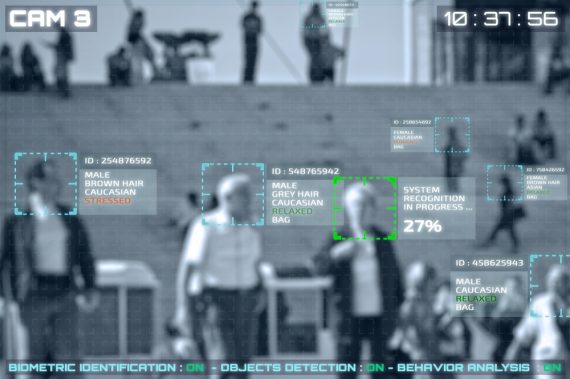Intelligence is a field that is really problematic with its own confidentiality to be investigated, understood and made sense of. Academic studies in the field are mostly the product of former intelligence sector employees or those individuals who have the “curiosity.” In addition, those who write dissertations in the field of intelligence tend to do more literature search than investigation.
Intelligence studies conducted on specific countries are unfortunately insufficient for reasons such as difficulty in accessing intelligence activities, which are confidential, law enforcement and drowning in the line between conducting an academic study and creating conspiracy theories. However, it is necessary to conduct relevant studies and make intelligence a field in academia in order to understand the scope and method of the area.
The scope of intelligence
Identification is the most difficult part of intelligence. When considering its general practice, it is the curing of information gaps for national security by making sense of intelligence data, providing early warnings and presenting the “picture” that is conceived through foresight to decision makers and institutions. So, there is no discrimination such as peace-crisis-war in the production of intelligence. In a systematic way, the following tasks are expected from intelligence employees:
- To present prioritized intelligence to decision-makers
- To make intelligence planning
- To profess information activities
- To analyze and synthesize the obtained data
- To increase action by drawing to a conclusion
If we were to classify intelligence, which is generally the organ of security operations, it can be arranged as the following: state intelligence, police force intelligence, military intelligence, functional intelligence on the level of ministries and institutions, and “private” intelligence, which consists of the business world and individuals trying to perform in a semi-professional manner. Different classifications can be made for the preferred methods in the production of intelligence, different disciplines, or the times that intelligence is used. Without disregarding this classification, the following should be considered:
A classification considering the institutions mediated to produce intelligence can make research easy. In the evaluations made on the basis of the institution, the academic opinion that intelligence is an art because it requires science and foresight is based on tangible findings such as a “multi-disciplinary” field.
Turkey’s intelligence institutions
The president of the National Intelligence Agency (MIT) is responsible for intelligence activities in Turkey and is responsible for the coordination of all intelligence activities among different institutions. In this framework, according to No. 2937 of the State Intelligence Services and National Intelligence Organization law, MIT is liable and authorized to enforce the activities of all intelligence for Turkey’s internal or external security, intelligence gathering management, execution of analysis and synthesis process, conducting early warning processes for the development of necessary measures, and conducting intelligence activities on an operational level when necessary. In other words, the “National Intelligence Agency is the first actor responsible for both the success and failure of the national security of Turkey.”
The activities of law enforcement intelligence include to prevent crime, the pursuance of duties and to commerce the legal procedure by the General Directorate of Security, the Gendarmerie General Command and the Coast Guard Command. This branch of intelligence is essentially under the responsibility of the Interior Ministry. This branch of intelligence is necessary to produce the intelligence required for the duties stated in the laws and regulations that regulate the activities of relevant institutions.
Recommended
Military intelligence accounts to the production of military information needed for conditions of war and crisis and for military tasks specified under the law. It is professed under the responsibility of the Ministry of National Defense in order to fill the “information gap related to threats from air and land,” which is a cliché in military literature. Military intelligence activities that begin during times of war and crisis should also be enforced during periods of peace due to the possibility of being late in terms of timing. Thus, military intelligence is expected to examine the capacity of a nation’s military capacities or the military capacities of actors that may be threatened during times of crisis.
The private intelligence activities of individuals and the business world are limited due to legal regulations in Turkey. However, the business world can examine data that belongs to other companies they compete with within the framework of their own agenda and by using legal means available to the public during this period. On the other hand, it does not seem possible for individuals to conduct intelligence activities for the privacy of personal data and the protection of private life.
Intelligence and July 15
The issue of how effective Turkish intelligence is currently and how effective it was before the July 15 coup attempt is still a question that is being discussed. Effectiveness in this regard can be measured in two ways:
- The measurement of intelligence services in different duty areas
- Examining the success or failure of the results achieved from tasks performed
The first can be done separately by the evaluation and assessment bodies within intelligence organizations. Parameters such as personal management, organizational rhythm and activity, operational capacity and capability, access and use of intelligence technologies, reporting and feedback system can be taken into consideration when measuring the task effectiveness of intelligence organizations. It is not possible to make any judgement at the moment due to the fact that all this data belongs to the internal functioning and supervision of the relevant organizations and are not shared with the public.
A second method of measuring success or failure is evaluating the results desired on the national agenda or observing the management of events in the direction of national interests. In the evaluation of MIT, which is the dominant coordinator of intelligence and the sole responsible organization in ensuring the security of Turkey, taking preventative measures against the re-occurrence of an event such as July 15 can be considered as a success criteria in the struggle with such a terrorist organization. It is now well accepted that MIT was too late in preventing the July 15 coup attempt. However, following the coup, efforts to clear FETO staff in government institutions and taking proactive intelligence measures in the developments on the southern border are positive signs.
The intelligence structure of the police and gendarmerie was abused by FETO prior to the July 15 coup attempt. This illustrates a failure in the fulfillment of evaluating the effectiveness of intelligence efforts of law enforcement officers. In the aftermath however, with the fight against FETO, efforts in the field of crime and counter-terrorism, in parallel with the success achieved in domestic counter-terrorism are clear. In the context of military intelligence, the weakness of exposing FETO members before July 15 is a weak point. Again however, in the aftermath of the coup attempt, while carrying out successful land and air operations, counter-terrorism measures taken by the Special Forces promise hope for the activity of military intelligence in Turkey.
Intelligence is a function that states perform in both full productivity and privacy. When the general norms for intelligence and its organization in practice – starting from the definition and scope of intelligence – are analyzed, it can be stated that Turkey took measures in the aftermath of the July 15 coup attempt, and is continuing to take measures for a concrete intelligence structure that will bring positive change. In this context, lessons ought to be taken from failures, and intelligence needs to be developed with a proper management policy that includes science and arts, with reference to duties stated in the law. Turkey has the relevant manpower, organizational capacity, tools and technology, and political will in order to realize the relevant transformation.





